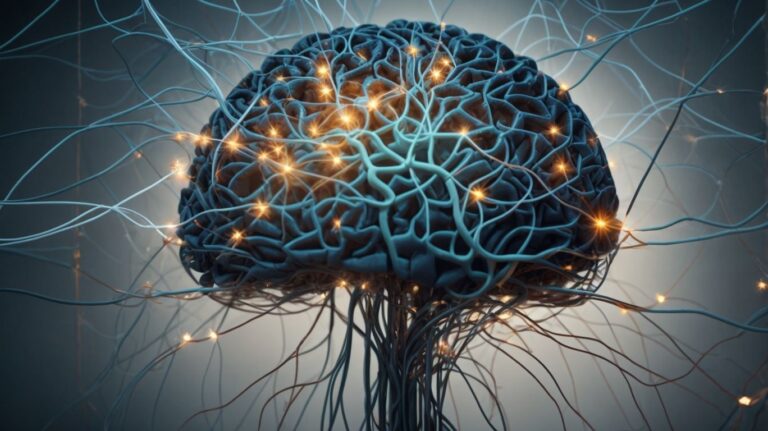Efficacy is a term often thrown around in the field of psychology, but what does it really mean? This article aims to break down the concept of efficacy and explore its role in psychology.
From differentiating efficacy from related terms like effectiveness and efficiency, to understanding how efficacy is measured and why it is crucial in psychological interventions, we will delve into the importance of efficacy in achieving successful treatment outcomes. Join us as we unravel the complexities of efficacy in the realm of psychology.
Contents
- 1 Key Takeaways:
- 2 Understanding Efficacy in Psychological Context
- 3 Differentiating Efficacy from Other Related Terms
- 4 The Importance of Measuring Efficacy in Psychology
- 5 The Relationship Between Efficacy and Treatment Outcomes
- 6 Improving Efficacy in Psychological Interventions
- 7 Frequently Asked Questions
- 7.1 What is decoding efficacy in a psychological context?
- 7.2 Why is decoding efficacy important in psychology?
- 7.3 How is decoding efficacy measured and evaluated?
- 7.4 What factors contribute to an individual’s decoding efficacy?
- 7.5 Can decoding efficacy be improved?
- 7.6 How does low decoding efficacy impact individuals and relationships?
Key Takeaways:
Understanding Efficacy in Psychological Context
Understanding Efficacy in Psychological Context delves into the intricate processes of decoding messages within the brain through cognitive analysis and neural activities. The cognitive process of encoding and decoding messages involves various factors such as noise, context, and cultural influences.
What is Efficacy?
Efficacy, in the psychological context, refers to the ability of the brain to decode and interpret messages through intricate cognitive processes. The analysis of efficacy often involves studying patterns of neural activity in response to various stimuli.
Understanding efficacy plays a crucial role in comprehending how individuals perceive and attribute meaning to different forms of communication.
When considering efficacy within the realm of messaging, one must delve into the intricate cognitive processes that are activated when processing information. These processes encompass attention, memory, perception, and decision-making, all working in harmony to decipher the intended message.
The study of efficacy extends to the exploration of neural patterns that underlie the processing of information, with advanced technologies such as fMRI analysis providing valuable insights into how the brain responds to stimuli.
What is the Role of Efficacy in Psychology?
The role of efficacy in psychology is crucial as it influences how individuals perceive and interpret information within the context of their worldview, values, and mental states. Efficacy plays a significant role in shaping human cognition and understanding of the external world.
When individuals possess a strong sense of efficacy, they are more likely to approach challenges with confidence and resilience, ultimately impacting their cognitive processes and problem-solving abilities.
This internal belief in one’s capability directly influences the way individuals set goals, handle obstacles, and maintain motivation. Efficacy is closely tied to an individual’s sense of self-worth and achievement.
When someone believes in their abilities to succeed, they are more likely to take on new tasks, persist in the face of setbacks, and view challenges as opportunities for growth.
Differentiating Efficacy from Other Related Terms
Differentiating Efficacy from Other Related Terms involves distinguishing between efficacy, decoding, and efficiency in cognitive processes. Understanding the distinct patterns of neural decoding and efficiency in information processing is essential for a comprehensive analysis.
Efficacy vs Effectiveness
Efficacy and effectiveness are distinct concepts in cognitive processes, with efficacy focusing on the accuracy of message decoding, while effectiveness pertains to the overall impact of communication within specific contexts.
Efficacy in cognitive processes is crucial for successful communication. It involves accurately processing information, understanding its meaning, and assessing its validity. Any misinterpretation can lead to misunderstandings or distorted perceptions.
On the other hand, effectiveness in communication considers the broader outcome of the process. It includes factors such as whether the intended message was received as intended, if it led to the desired actions or reactions, and the overall impact on the recipient.
Efficacy vs Efficiency
Efficacy differs from efficiency in terms of cognitive processes, with efficacy focusing on the accuracy of decoding messages based on individual worldview and values, while efficiency emphasizes streamlined information processing to reduce cognitive load.
In terms of cognitive processes, efficacy plays a crucial role in how individuals interpret and respond to incoming information. It is deeply intertwined with one’s personal beliefs, experiences, and moral compass, guiding the way they filter and analyze data.
The effectiveness of these cognitive processes, rooted in efficacy, can greatly impact decision-making and problem-solving abilities.
On the other hand, efficiency steps in to optimize these cognitive functions by prioritizing speed and resource allocation. It’s about finding the most economical way to process information, ensuring swift reactions and minimal wastage of mental energy.
In essence, efficiency acts as a catalyst for enhancing productivity and performance in cognitive tasks, leading to improved outcomes and task completion.
The Importance of Measuring Efficacy in Psychology
The importance of measuring efficacy in psychology lies in understanding how the brain processes messages and decodes information within the complex cognitive processes of encoding and decoding. Analyzing efficacy provides insights into how individuals interpret messages based on personal contexts and mental states.
How is Efficacy Measured?
Measuring efficacy in psychology involves analyzing cognitive processes, decoding patterns of neural activity, and assessing the accuracy of message encoding and decoding. Researchers use stimuli to evoke neural codes and analyze information processing.
In psychology, researchers employ various methods to measure efficacy through cognitive assessments, such as reaction time tests, memory recall tasks, and problem-solving activities to understand mental processes.
They delve into the neural patterns associated with these cognitive processes through techniques like EEG and fMRI scans, mapping brain activity during tasks. Stimuli, ranging from visual cues to auditory prompts, are strategically designed to trigger specific neural responses, aiding in decoding neural codes that contribute to cognitive functions. This process helps in unraveling the intricate connections between external stimuli and internal cognitive processes.
What Factors Affect Efficacy?
Various factors influence efficacy in cognitive processes, including brain activity in the visual cortex, perceptual mechanisms, imaging techniques, experimental designs, and the nature of stimuli presented during analysis.
Research suggests that the visual cortex plays a crucial role in processing visual information, such as recognizing patterns and shapes. Perceptual mechanisms, such as attention and memory, also significantly impact how accurately information is decoded in the brain.
Advancements in imaging techniques, like fMRI and EEG, have provided valuable insights into neural activity patterns during cognitive tasks, aiding researchers in measuring efficacy levels more precisely. The characteristics of stimuli, such as complexity, familiarity, and salience, can influence the efficiency of cognitive processes by either enhancing or disrupting neural processing pathways.
Why is Measuring Efficacy Important in Psychology?
Measuring efficacy is essential in psychology to gain insights into neural coding, information processing, cognitive encoding, and decoding mechanisms. Understanding efficacy provides a deeper comprehension of how the brain interprets and deciphers incoming information.
By evaluating efficacy levels, psychologists can determine the effectiveness of various interventions, treatments, or therapeutic approaches. This not only aids in assessing the impact of different psychological techniques but also helps in enhancing overall mental health outcomes.
Neural coding analysis plays a crucial role in this process, allowing researchers to study how the brain stores and processes information related to efficacy. The intricate web of neural connections and firing patterns reveals intricate details about how individuals perceive, understand, and respond to stimuli.
The Relationship Between Efficacy and Treatment Outcomes
The Relationship Between Efficacy and Treatment Outcomes explores how communication, message decoding in the brain, cognitive analysis, and encoding processes impact the effectiveness of treatments. Understanding the cognitive decoding patterns and noise in information processing is crucial in predicting treatment efficacy.
How Does Efficacy Affect Treatment Outcomes?
Efficacy directly influences treatment outcomes through its impact on brain activity, visual cortex processing, perception mechanisms, imaging results, and experimental analyses.
The visual cortex plays a pivotal role in processing and interpreting sensory information, making it a crucial element in understanding how efficacious treatments affect the brain.
By studying how different therapies modulate neural activity in the visual cortex, researchers can gain valuable insights into the mechanisms underlying treatment efficacy.
- Imaging techniques such as functional magnetic resonance imaging (fMRI) provide a window into the brain’s response to treatment, allowing for the visualization of changes in neural activity induced by different therapeutic interventions.
- Experimental designs that incorporate control groups and randomized assignment help researchers establish causal relationships between treatment efficacy and observed changes in brain activity.
What Can Affect the Efficacy of a Treatment?
Several factors can influence the efficacy of a treatment, including the nature of stimuli used, neural coding mechanisms, information processing efficiency, cognitive encoding processes, and decoding accuracy in responses to treatments.
When considering the impact of stimuli characteristics on treatment outcomes, it is crucial to analyze how stimuli are presented to individuals undergoing therapy.
The type, intensity, duration, and frequency of stimuli all play a significant role in determining the success of a treatment. Understanding neural coding mechanisms sheds light on how the brain interprets and responds to these stimuli, shaping the overall effectiveness of the intervention. Information processing efficiency further comes into play, as the brain’s ability to digest and integrate new information influences the outcome.
Cognitive encoding and decoding processes act as gatekeepers in determining how effectively the treatment is absorbed and utilized by the individual, ultimately affecting treatment effectiveness.
Improving Efficacy in Psychological Interventions
Improving Efficacy in Psychological Interventions involves optimizing communication, message decoding in the brain, cognitive analysis, and encoding processes to enhance the effectiveness of treatments. Addressing cognitive noise and contextual influences is vital in achieving higher efficacy in interventions.
What Can be Done to Improve Efficacy in Psychological Interventions?
Improving efficacy in psychological interventions involves enhancing brain activity, visual cortex responses, perception mechanisms, imaging techniques, and experimental designs to optimize treatment outcomes. Utilizing targeted stimuli can improve the neural processing efficiency and decoding accuracy in interventions.
One effective strategy is the use of biofeedback to enhance brain activity through real-time monitoring and feedback mechanisms, promoting self-regulation and neuroplasticity in patients.
Incorporating mindfulness techniques such as meditation can modulate visual cortex processing, increasing attention and awareness. Optimizing perception mechanisms can involve exposure therapy, cognitive restructuring, and attention training to reshape maladaptive cognitive patterns.
How Can Efficacy be Maintained in Long-term Treatments?
Maintaining efficacy in long-term treatments requires continuous cognitive analysis, monitoring encoding processes, managing noise and contextual influences, optimizing stimuli presented, and assessing neural coding patterns for sustained treatment effectiveness.
One vital aspect of ensuring the sustainability of long-term psychological treatments is through ongoing cognitive analysis. By regularly analyzing cognitive processes and adjusting therapeutic strategies based on these analyses, treatment providers can fine-tune interventions to better suit the evolving needs of the individual.
Effectively managing encoding processes over time is crucial for maintaining treatment efficacy. By understanding how memories are encoded and retrieved, therapists can adapt their approaches to enhance memory consolidation and retrieval in therapy sessions.
Addressing noise and contextual factors is equally essential in long-term treatments. Strategies such as creating a conducive therapy environment, minimizing distractions, and acknowledging external influences can help optimize the treatment setting for improved outcomes.
Optimizing stimuli presentations in therapy sessions plays a key role in sustaining treatment efficacy. By carefully selecting and delivering stimuli that resonate with the individual’s experiences and emotional triggers, therapists can enhance engagement and facilitate deeper emotional processing.
Assessing neural coding patterns is essential for evaluating the effectiveness of long-term treatments. By monitoring brain activity and neural responses to therapeutic interventions, clinicians can gain insights into the neural mechanisms underlying treatment outcomes and tailor interventions for long-term success.
Frequently Asked Questions
What is decoding efficacy in a psychological context?
Decoding efficacy refers to an individual’s ability to accurately interpret and understand nonverbal cues and gestures from others in social interactions, specifically in a psychological context.
Why is decoding efficacy important in psychology?
Decoding efficacy plays a crucial role in our understanding of communication and social interactions. It helps us accurately interpret the emotions, thoughts, and intentions of others, and can impact the quality of our relationships and overall well-being.
How is decoding efficacy measured and evaluated?
Decoding efficacy is typically measured through various tests and assessments that evaluate an individual’s ability to interpret and respond to nonverbal cues. These may include facial expression recognition tasks, body language interpretation exercises, and social interaction scenarios.
What factors contribute to an individual’s decoding efficacy?
There are several factors that can influence an individual’s decoding efficacy, including their cognitive abilities, personality traits, cultural background, and past experiences with social interactions.
Can decoding efficacy be improved?
Yes, decoding efficacy can be improved through various techniques such as practicing active listening, seeking feedback from others, and participating in social skills training programs.
How does low decoding efficacy impact individuals and relationships?
Individuals with low decoding efficacy may struggle to accurately understand and respond to nonverbal cues, which can lead to misunderstandings, miscommunications, and strained relationships. It may also cause feelings of isolation and social anxiety.



